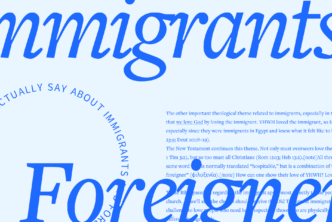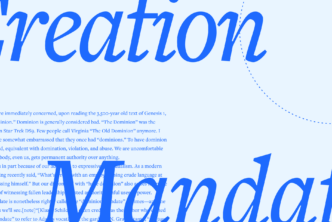If you’ve gone to church, listened to sermons, or studied the Bible for any amount of time, you’ve probably heard that the Septuagint (abbreviated “LXX”) is what the NT writers usually quoted from, or that some even say the Septuagint was “Paul’s Bible”.
This is all well and good, but how do we use the Septuagint when we’re studying the New Testament? How do we understand (and identify) quotations from the Septuagint in the NT? And and how do we draw upon the linguistic richness that the Septuagint provided the early Christians?
These are the sorts of questions that R. Timothy McLay examines in his book The Use of the Septuagint in New Testament Research. McLay helpfully provides a summary of the structure of the book at the end of the introduction. Note that “TT” is an abbreviation for “Translation Technique”:
We will follow this introductory chapter with our investigation of the citation in Acts 15:16–18. Chapter one will serve to introduce the reader to the complex world of the use of Scripture in the NT and to raise some of the issues that are involved. Chapter two will examine TT in the LXX and the problem of whether the NT writer is quoting a Hebrew or Greek text. Here we will begin defining the purpose of TT and discuss the problems of methodology for analyzing TT. This chapter contains some discussion that is quite technical in nature; it may be skimmed by students who are more interested in the impact of the Greek Jewish Scriptures on the NT. We will conclude the examination of TT in the following chapter by proposing a methodology for analyzing TT. Chapter four will outline the transmission history of the LXX and its recensions. Again, the knowledge gained from the study of specific texts will be applied to NT research. Chapter five will draw upon the arguments of the previous chapters as we examine more passages in order to determine how the NT writers’ use of the Greek Jewish Scriptures is reflected in their theology. We will argue that the theology of the NT exhibits the distinct influence of the Greek scriptural tradition by its use of vocabulary, its citations of Scripture, and its theological concepts. The final chapter will offer concluding remarks.
R. Timothy McLay, The Use of the Septuagint in New Testament Research (Grand Rapids, Mich.: W.B. Eerdmans Pub. Co., 2003), 16. emphasis added.
As you can see, using the Septuagint when studying the New Testament is more than just identifying a quotation, it can also involve work to understand the relation between the Hebrew and Greek editions of the quotation, and further understanding of any changes the NT author may have made when quoting. Deeper than that, there are issues of common vocabulary (end of chapter five) and how term usage during the time of NT composition may have influenced early Christian understanding of the Septuagint text itself. This is all fascinating stuff!
McLay’s book is helpful because it delves deeply into methodology. A complementary book for helping with one’s examination of the New Testament’s use of the Old Testament is Carson and Beale’s Commentary on the New Testament Use of the Old Testament. This exhaustive volume is nearly 1300 pages of examination, ordered like a commentary, on the New Testament use of the Old Testament. In other words, several of the authors use techniques like those explained by McLay in their identification and discussion of quotations of the Old Testament.
Of course, also useful in this type of study is an edition of the Septuagint itself. We have been working on our own interlinear edition of the Septuagint, the Lexham Greek-English Interlinear Septuagint, for a few years now. I’m pleased to say we’re coming near the end and, assuming nothing crazy happens, we should have the initial version of the complete Septuagint available in the next few weeks. Of course, users who already have the resource will be able to download updates when it is released.





